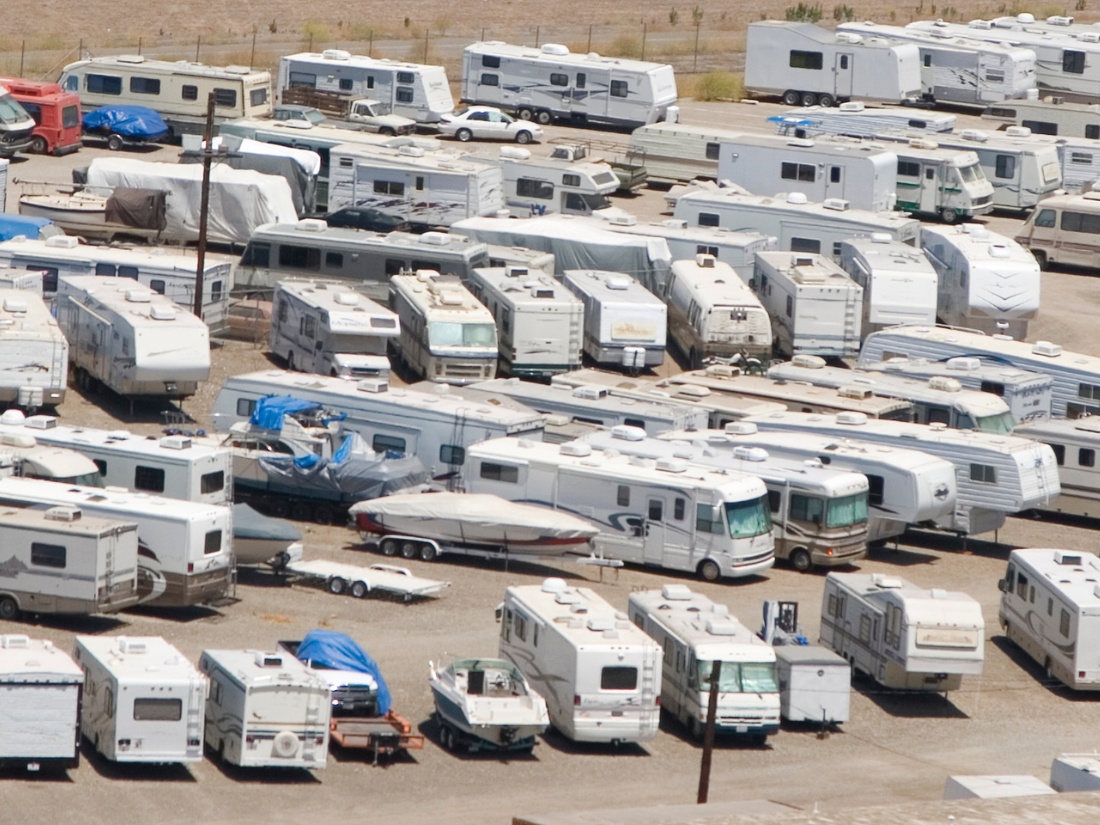Buying an RV can be a scary experience. The options are endless and the knowledge required to fish through it all can be overwhelming. When you start looking at used RVs, the questions of what to look for double as you shop.
While buying used never comes with a guarantee, there are some things to look for to make you feel a little more confident in your buying experience.
1. Water damage
This is the most important thing to look for in a used RV as water damage can lead to other major problems like structure issues and hidden mold. Often times if you look closely enough, you will be able to spot the signs.
As you look through the RV, check for the following:
- Water spots - These can be found anywhere, especially along ceilings and near bunks. Take a small flashlight to look into cabinets where they may be harder to spot.
- Smell - Mildew and mold have a very prominent smell, so keep your nose open from the moment you walk in. As you look around, you will get more used to the smell, so be sure to pay attention the second you step into the home.
- Fresh paint - Be sure to question fresh paint, especially if it is just certain sections. It may be the owner trying to hide some important signs.
2. Cracked tanks
Because they are under the RV, some may forget to look the holding tanks over thoroughly. Make sure you use a flashlight and look closely for any signs of cracks, wear, or leaks in the freshwater, gray water, and black water tanks. These would be unwelcome surprises on your first trip out.
3. Sun and salt damage
Look around the entire outside of the RV from roof to bottom, checking for signs of sun or salt damage. These exposed sections can lead to rust and leaks quickly so it's important to decide how much damage there is and if it would be worth the cost to fix it. Don't be afraid to climb up the ladders and crawl under the rig.
4. Tires
Tire blowouts are a very scary thing when RVing, so having good tires is a must. Check the dates on the tires and look them over for excessive wear. If they are older or worn, weigh the upfront cost of brand-new tires with the purchase price to decide if it will be worth it.
5. Mileage versus age
There is a fine balance between the mileage in comparison to the age of the RV. If the mileage is very high, consider it as you would a used vehicle purchase. Over 100,000 miles would clearly indicate more potential maintenance and a shorter overall life. If, however, the mileage is strangely low for the age of the RV (say twenty years old with 5,000 miles), then it is important to ask about its storage. Sometimes, lower miles and older ages can lead to other maintenance problems as RVs are meant to be used, not just sat in a garage.
Purchasing a used RV can definitely save you a lot of money as long as you do it smartly. Being aware of the potential risks and upfront costs is your best defense against buying a lemon or a money pit. Take your flashlight, wear clothes you don't mind getting dirty and don't be afraid to look closely at every part of the rig and you are sure to come out with a great deal.



